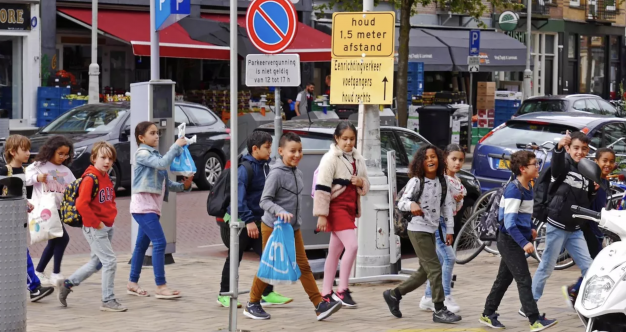
Online workshop examines children’s perceptions of the urban world
‘Experimenting’ with how children see and experience elements of city life will be the subject of an online workshop being held by the University of Amsterdam.
It’s the latest in the Urban Dialogues Series organised by the university’s Centre for Urban Studies (CUS), and gives members and guests to share research and get feedback about areas of study based on cities and their people.
The next one, Communing in the fringes of cities, takes place on September 28, and will ‘creatively experiment with children’s perception and experience of the urban commons’. It has so far involved working alongside an art teacher and a film maker, while children from four primary schools have also been brought on board, taking part in walk-along discussions and art workshops.
Francesca Ranalli and Jade Mandrake, urban researchers based at the CUS are hosting the event, and they say: “The children’s drawings and models were analyzed using object analysis and artistic research methods, of which we will present the preliminary results to CUS. Those methods contribute to knowledge of children’s perception in peri-urban areas, such as emotional safety, fun and play vs. boredom and danger, awareness of spatial changes and the ways in which they envision possibilities for development. From the perspective of artistic research, we explore the significance of non/rationality to produce knowledge in urban planning.
‘Results can help urban planners and policy makers’
“The analysis showed that children’s neighbourhood places tend to reflect adults’ values and space production and that creative output is confined without top-down intervention. In practice, this project’s results can help urban planners and policy-makers to address urban development, with an intergenerational approach that supports co-creation of public spaces. In the next phase, the children along with a local artist will build a temporary art installation in a public, neighbourhood space.”
They plan to present and discuss the final results at the start of December in an event that will bring together children, policymakers, researchers, local institutions and artists.
The online event takes place on 28 September from 1700 to 1800 Central European Time, and comprises a 30-minute presentation and 30 minutes for questions and feedback. Anyone interested in taking part should send an email, including their name and affiliation to urbanstudies@uva.nl to receive a Zoom link.




